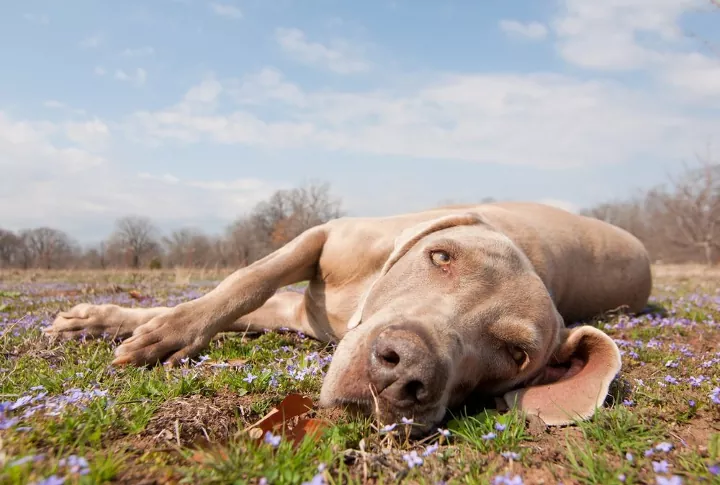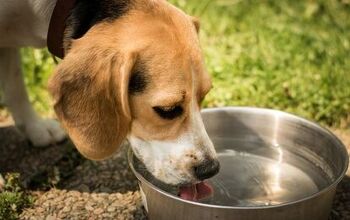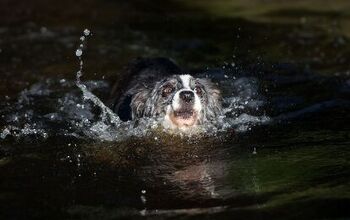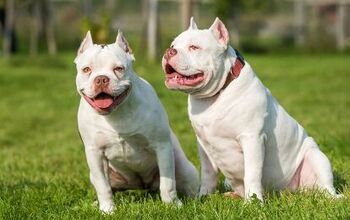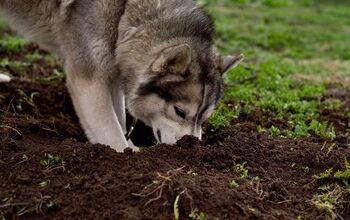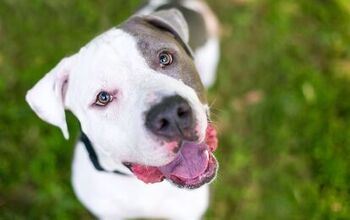Why is My Dog Lethargic?

We know our pooches, don’t we? And after years of living side-by-side, we know when our little guy is feeling off. It doesn’t have to be as full-on as vomiting or diarrhea, it can often just be subtle signs that tell you he’s not feeling himself. Like the way, he no longer snaps to attention when you offer him a treat, comes running when he hears you jingle his leash, or turns his nose up at his favorite foods. It’s called lethargy, and while you may be inclined to dismiss it as being just the heat, him being tired, or simply down to boredom, it may be something entirely different. Something that needs your vet’s attention. Particularly if he’s been acting “off” for more than 24 hours.
What causes lethargy in a dog? Once you’ve ruled out genuine fatigue from an overly active day at the dog park, you may want to consider these potential causes.
- Poisoning
Now, while you’re probably thinking that there’s nothing for him to get into, you may need to think a little harder. In his outdoor space, have there been chemical applications or fertilizers put on the lawn that he may be licking off his feet? Are any of your plantings dangerous to animals? Not sure? If you have daylilies, azaleas, asparagus fern, hyacinth, hydrangea, wisteria (google for a full list), your pooch may have snacked on them. Is he able to access the garbage? Time to do a quick patrol of your outdoor space to ensure it truly is dog-proof.
2. Parvovirus or Leptospirosis
If your dog is like mine, he sniffs absolutely everything he finds at the off-leash park. And sometimes, he does more. I know it’s gross, but it’s not uncommon for dogs to snack on found feces and that’s where he can pick up parvovirus or leptospirosis. Both involve direct contact with the feces or urine of infected animals. With parvo, it enters his bloodstream and intestines causing serious issues that require immediate vet care. Likewise, with leptospirosis, where bacteria found in contaminated water can be absorbed through his eyes, nose, or mouth when he drinks it or swims in it. If left untreated, it can cause kidney or liver damage. In both instances, vaccines are available and should be included in the annual inoculation regimen for any dog that spends time out of doors.
3. Age and Pain
While it’s a tug on the heart the moment you realize your pooch is struggling to keep up, its also an opportunity for you to recognize his loyalty and adjust your routine to meet his new needs. Dogs that are lethargic may be older and starting to experience fatigue more easily as well as joint pain. If it’s chronic, you may find he’s off his food and prefers to stay in his bed or on the sofa. When it gets to this stage, you need to be working with your vet to come up with a system of pain management that helps him regain his appetite and prevent the inevitable depression. That said, never assume that age is the cause of his withdrawal. Your vet can run the necessary tests to rule out other causes.
4. Kennel Cough
Fact or fiction? That the communal water bowl your dog runs to on a hot day at the dog park can spread this illness. The answer: unlikely. According to the American Kennel Club, Kennel Cough is spreading through, well, coughing. Unless an infected dog coughs or sneezes directly over or into the water bowl, your healthy pooch is safe to lap it up. If he does pick it up, the early signs are the tell-tale honking cough, sneezing, runny nose, and of course, lethargy. While it will typically clear up on its own after a few weeks, a vet can prescribe an antibiotic to target the specific bacteria and have your pooch feeling better, sooner.
5. Heart Disease
If your dog seems to be less inclined to get out and walk or seems listless when you visit his favorite place in the world – the leash-free park – you may be dealing with heart disease. Reduced tolerance for exercise is an early sign that something may be wrong. If your vet diagnoses heart disease, there are steps that can be taken to keep the disease at bay. A change in diet, medication, diuretics – and of course, adapting his exercise regimen to suit his new normal.
6. Diabetes or Hypoglycemia
If your dog seems generally weary, is losing weight, and you’ve noticed he seems to be excessively thirsty at all times of the day and night, you may be dealing with diabetes. The decline in your pet’s appearance can be rapid and dramatic, so get him in to your vet for a proper diagnosis and plan of action. If caught early, it can often be tackled through a change in his diet rather than requiring daily injections. With hypoglycemia, you’re dealing with low blood sugar (opposite of diabetes) and it tends to be a symptom of something larger – which could include liver disease, pancreatic tumors, or sepsis.
7. New Medications
Has he started any new medications? What about the flea and tick control products you’re using? I know I have to stagger the dosage of these treatments because of my dogs’ sensitive tummies. If you’ve just dosed him, you may want to give it 24 hours to see if he picks back up. If he doesn’t, consider having a discussion with your vet about alternative treatment methods.
While these causes may sound scary, many of them are symptomatic of a health issue, that can be diagnosed and treated through diet and/or medications. In the case of a more serious ailment, you’ll want to work with your veterinarian to develop a routine for your pooch that keeps him feeling healthy, rested, and knowing that he can count on you.

Sharing space with three seriously judgy Schnoodles and a feline who prefers to be left alone. #LivingMyBestLife
More by Mary Simpson



